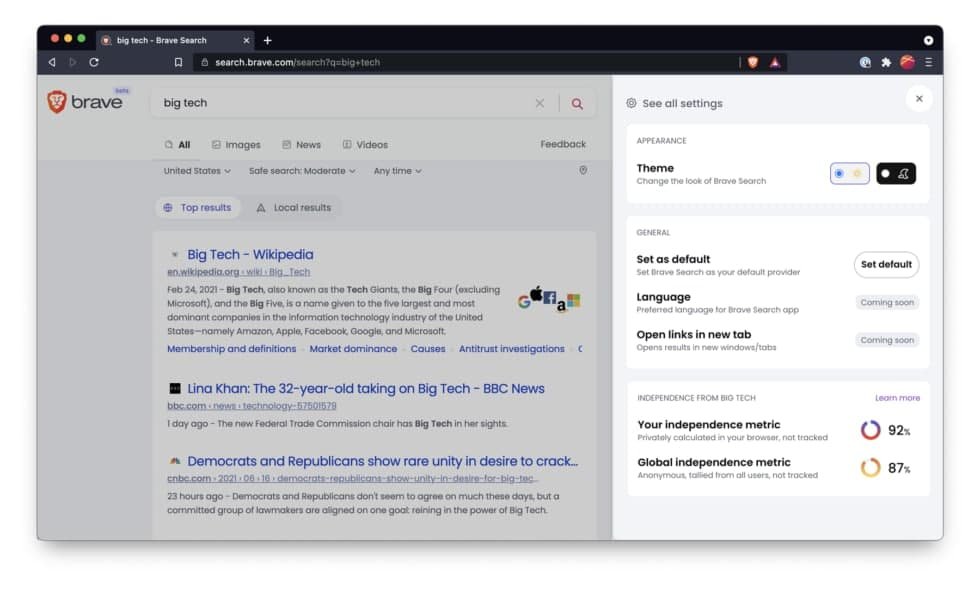Brave, a web browser focused on privacy, has today launched the first public beta for their search engine – Brave Search – that will be available to everyone through the official browser apps and also a new website. Brave describes it as key to compete with Google. Brave Search will become the default search engine in the Brave browser later this year.
In early March this year, Brave had acquired the open search engine Tailcat from Germany’s Hubert Burda Media. Without logging into the user’s activity, Tailcat was designed to give search results and is the foundation for launching Brave Search.
What are the claims by the company about Brave Search?
To improve search results, the company claims that it is not going to collect user’s IP addresses and personal data. Meaning users can map the internet without being tracked while using Brave Search. This is possible because of a feature called ‘Shields’which blocks trackers, advertisements, and unnecessary cookies.
Unlike search engines like Yahoo, Ecosia, StartPage, and other smaller search engines, which usually repackage Google and Microsoft’s Bing results, Brave has built a web independent index of their own.
Brave Search will use Bing in certain areas, such as images, where its results are not still good enough. For ordinary searches, Brave can merge into Google results for people who activate the feature when requested. Brave Search will not show any ads in the early phase of beta. Later, the company said that it will offer ad-free paid search and ad-supported free search.
The company believes that “The users come first, not advertising and data industries.” As the Brave does not collect any information, so there is no chance of any selling and sharing of data.
“If a user opts into data sharing then Brave will provide data about what they search. But that ‘clickstream’ is de-identified so it is not possible to track individual users and there is nothing wrong with using users’ clickstream data,” said Brender Eich, CEO, and co-founder of Brave in a blog post.
“Brave Search is the industry’s most private search engine, as well as the only independent search engine, giving users the control and confidence they seek in alternatives to big tech,” he added.
According to the analytic firm StatCounter, over 92% of all searches go through Google. And Big is far behind at less than 3%. Because of this Google is also under immense pressure to provide its users complete privacy. As governments around the world set up their antitrust surveillance.

But Brave is not the only enterprise targeting Google Core Business. A privacy-based search engine and mobile browser, DuckDuckGo, said this month its annual sales now exceed $100 million. The company is also planning to launch a desktop browser to take on Google.
However, if you don’t want to download Brave Browser to use the company’s anti-tracking Brave search then visit search.brave.com to use it in Google Chrome, Safari, and other browsers.
